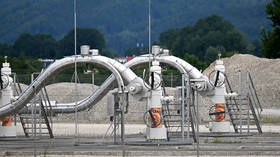HONG KONG (AP) — Hong Kong has long been a major producer and consumer of great food, and a great amount of plastic and Styrofoam to go with it.
That’s going to change as new legislation aiming to stop the sale and distribution of Styrofoam products and single-use plastic cutlery went into effect on Monday.
Under the new law, single-use cutlery such as forks, spoons, straws and plates cannot be sold or distributed for both dine-in and takeaway customers. However, plastic food containers and cups can still be given out for takeaways.
The regulation of disposable plastic tableware and other plastic products in Hong Kong aims to reduce their use at the source to cut down on pollution, Hong Kong’s Environmental Protection Department said in an emailed response to The Associated Press.
Restaurants were given a six-month grace period. A second phase of the ban, expected next year, will ban all single-use plastics including containers for both dine-in and takeaway.
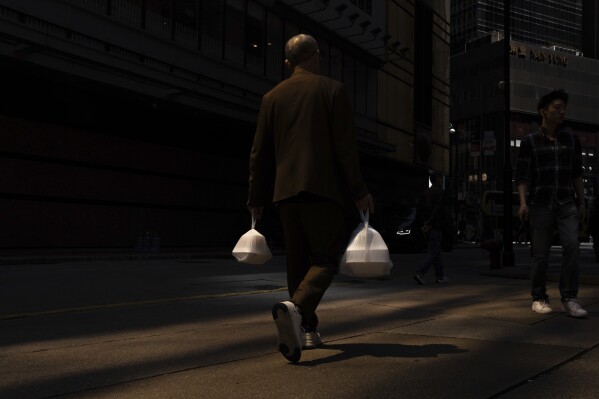
A pedestrian carries takeaway food plastic bags in Hong Kong, Wednesday, March 13, 2024. (AP Photo/Louise Delmotte)
Many restaurants have already begun implementing the new measure.
Kuen Fat Kitchen is a typical lunch stop for many people in Hong Kong. Even before the new law was introduced, it had already started to reduce the use of Styrofoam boxes.
Owner Kitty Chan said the changes will mean higher costs.
“For a single-use cutlery set, you might think it’s just a small change, but switching the plastic spoon to a paper spoon doubles the cost for us. So, it’s not so friendly to the business of the food and beverage industry,” Chan added.
Customers at Kuen Fat Kitchen have mixed feelings. Some don’t want to face extra hassle when going out to eat if they are asked to bring their own containers and utensils.
“When I’m at work, I only have an hour for lunch, and I need to eat efficiently. I don’t think it’s convenient for me to bring my own cutlery and do the washing up afterwards. It’s not convenient and I don’t think it’s a good idea,” said customer Darren Seng.
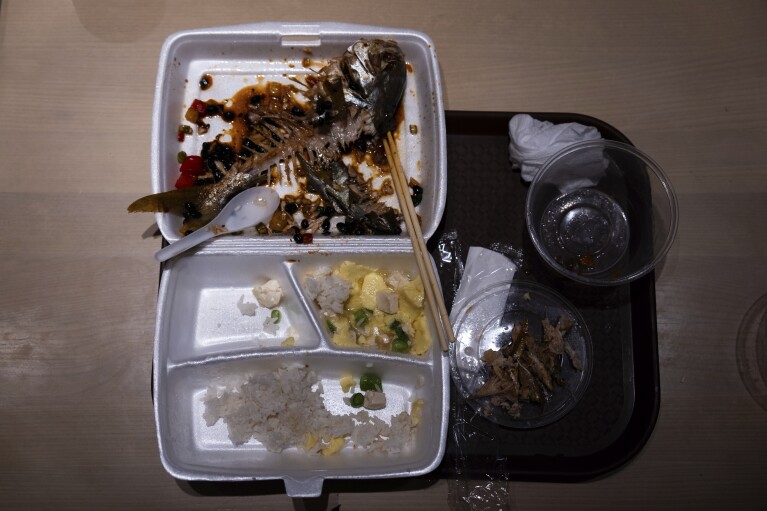
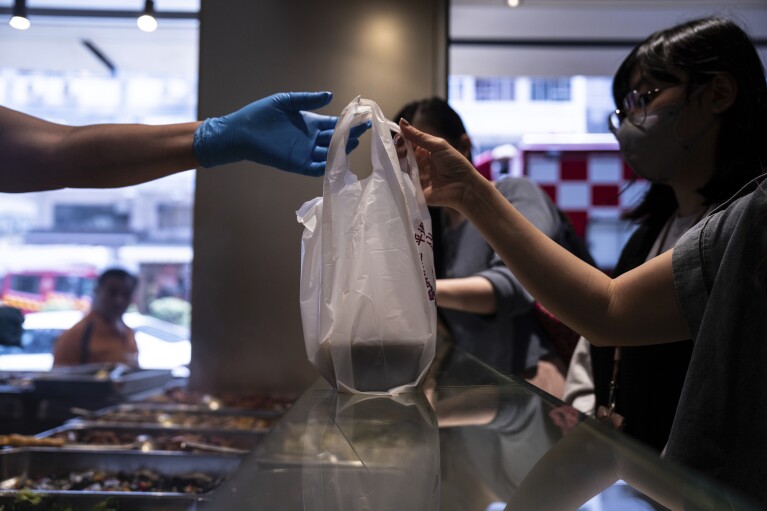
Others recognized the environmental impacts of their dining-out habits.
“I think it’s better for the environment,” said resident Thomson Choi.
Single-use plastic cutlery is the second-largest source of plastic waste after single-use plastic bags in Hong Kong, according to Greenpeace. Many businesses are changing to alternative plastics made of natural resources to comply with new rules, instead of improving their packaging, the organization added.
Greenpeace campaigner Leanne Tam hopes that the new law will discourage the throwaway culture and promote reusables, instead of “greener” disposables.
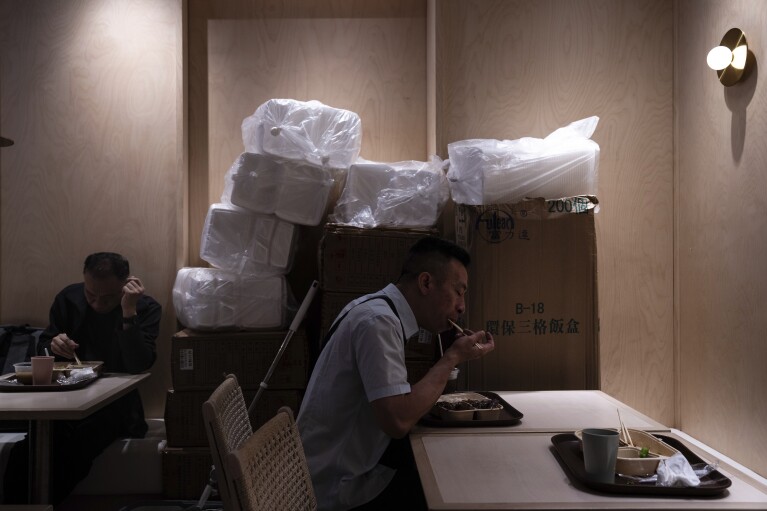
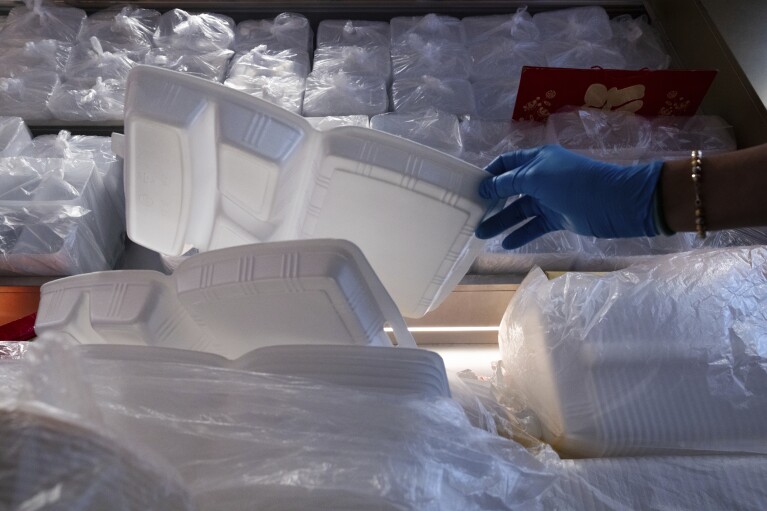
“Any kind of plastic ban policy should aim to influence the public to stay away from plastic. We should move on, and have a new approach,” said Tam. “But we would like to remind the government that it should devote more resources to promote reusable instead of disposable. This is the way to solve the root of the problem.”
According to the latest figures by Hong Kong’s government in 2022, the city disposed 11,128 tons of solid waste per day, among which plastics contributed 2,369 tons.
Hong Kong is reliant on the city’s three landfills to handle its waste, but they are expected to be filled up by around 2026, according to the government.
The city plans to implement municipal solid waste charging from Aug. 1, but the logistics have yet to be worked out. It would compel individual homes, restaurants, and all businesses to pay for trash they throw away.
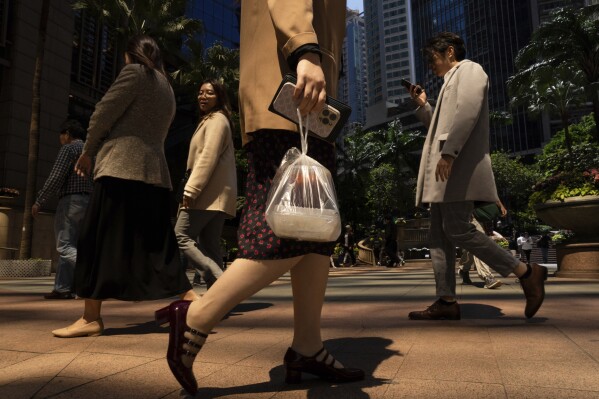
A pedestrian carries takeaway food plastic bag in Hong Kong, Wednesday, March 13, 2024. (AP Photo/Louise Delmotte)

Customers eat lunch next to takeaway food plastic bags ready for pick up at a restaurant in Hong Kong, Thursday, Feb. 21, 2024. (AP Photo/Louise Delmotte)
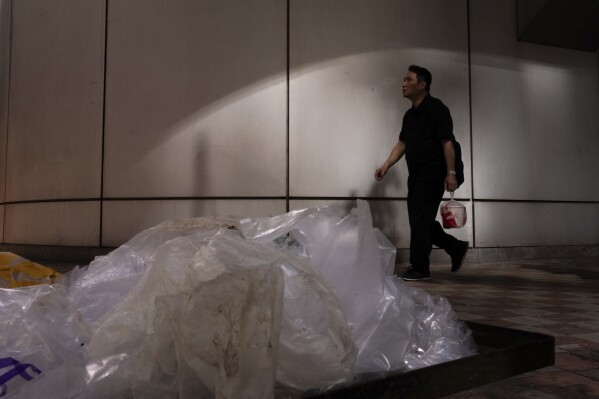
A pedestrian carrying takeaway food plastic bag walks past plastic waste in Hong Kong, Thursday, Feb. 21, 2024. (AP Photo/Louise Delmotte)
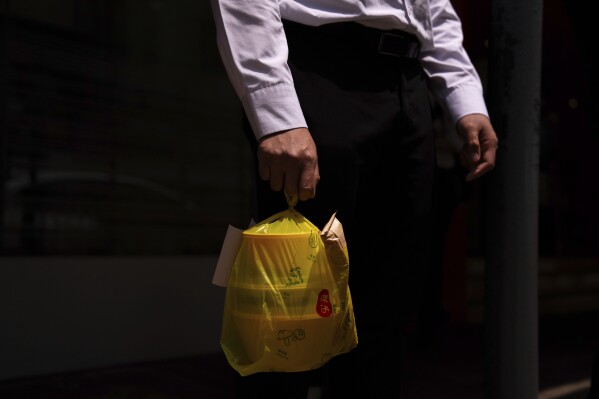
A pedestrian carries takeaway food plastic bag in Hong Kong, Thursday, April 11, 2024. (AP Photo/Louise Delmotte)
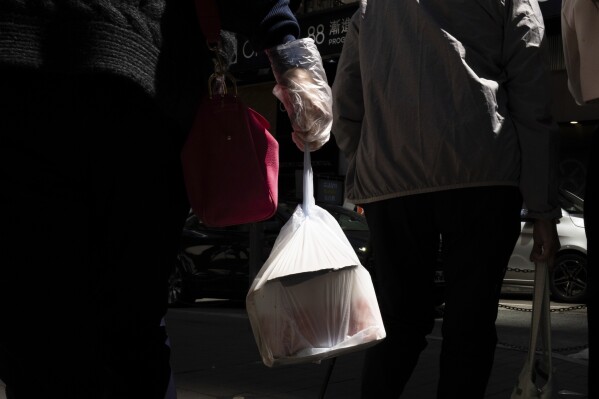
A pedestrian carries takeaway food plastic bag in Hong Kong, Wednesday, March 13, 2024. (AP Photo/Louise Delmotte)
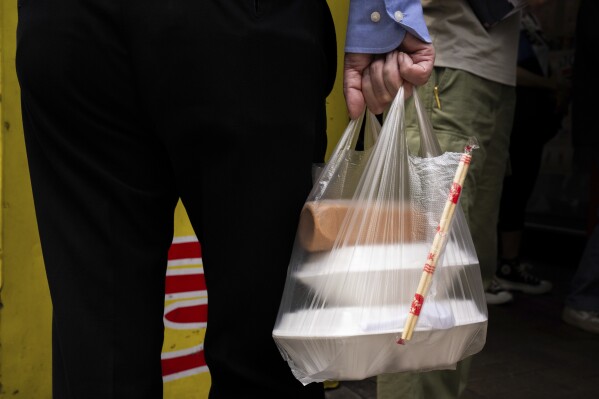
A pedestrian carries takeaway food plastic bag in Hong Kong, Thursday, Feb. 21, 2024. (AP Photo/Louise Delmotte)

Plastic waste lays on a beach in Hong Kong, Saturday, April 13, 2024. (AP Photo/Louise Delmotte)
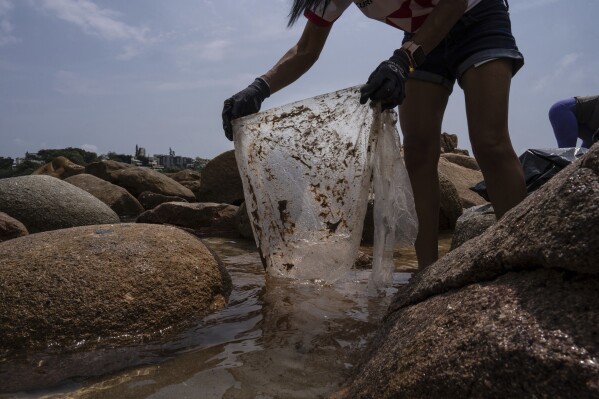
A volunteer picks up plastic waste from the sea at beach during a beach cleaning operation in Hong Kong, Sunday, April 14, 2024. (AP Photo/Louise Delmotte)

A volunteer picks up plastic waste from the sea at beach during a beach cleaning operation in Hong Kong, Sunday, April 14, 2024. (AP Photo/Louise Delmotte)
Disclaimer: The copyright of this article belongs to the original author. Reposting this article is solely for the purpose of information dissemination and does not constitute any investment advice. If there is any infringement, please contact us immediately. We will make corrections or deletions as necessary. Thank you.



